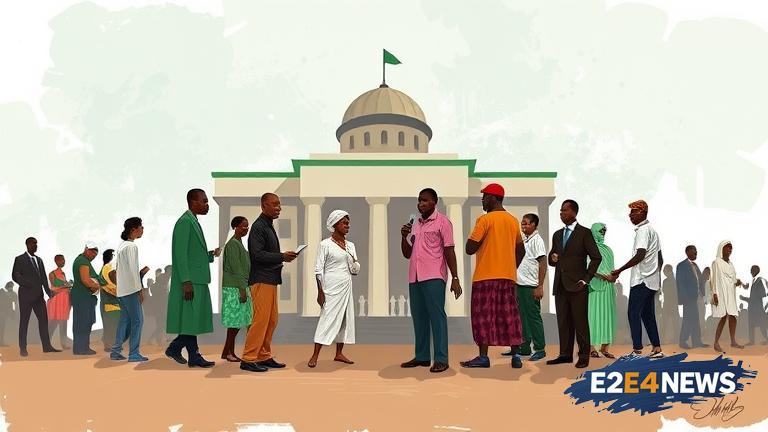The upcoming continuous voter registration exercise in Nigeria is generating significant interest and enthusiasm among political parties, civil society organizations, and citizens. As the Independent National Electoral Commission (INEC) prepares to commence the exercise on August 18, various stakeholders are gearing up to play their part in ensuring a successful and inclusive process. Political parties are vowing to mobilize their members and supporters to participate in the registration exercise, recognizing the importance of having a strong and diverse voter base. Civil society organizations, on the other hand, are demanding that INEC establish more registration centers to facilitate easier access for citizens, particularly in rural and hard-to-reach areas. The continuous voter registration exercise is a critical component of Nigeria’s electoral process, as it provides an opportunity for new voters to register and for existing voters to update their information or transfer their voting locations. With the 2023 general elections looming, the stakes are high, and the need for a credible and transparent electoral process cannot be overstated. The INEC has assured citizens that it is committed to ensuring a free, fair, and inclusive registration process, and has put in place measures to prevent fraud and irregularities. Despite these assurances, some citizens have expressed concerns about the potential for violence, intimidation, and manipulation during the registration exercise. To address these concerns, security agencies have pledged to provide adequate security coverage for the registration centers, while also ensuring that the rights of citizens are protected and respected. The role of civil society organizations in promoting civic engagement and voter education cannot be overstated, as they work tirelessly to educate citizens about the importance of voting and the need to participate in the electoral process. Furthermore, the media has a critical role to play in promoting transparency and accountability during the registration exercise, by providing accurate and unbiased information to citizens. As the continuous voter registration exercise gets underway, it is essential that all stakeholders work together to ensure a successful and peaceful process. This includes political parties, civil society organizations, security agencies, the media, and citizens themselves, who must take an active role in promoting civic engagement and voter education. By doing so, Nigeria can take a significant step towards consolidating its democracy and ensuring that the voices of all citizens are heard. The continuous voter registration exercise is also an opportunity for Nigeria to showcase its commitment to democratic principles and values, and to demonstrate its ability to conduct free, fair, and credible elections. As the country prepares for the 2023 general elections, the need for a strong and independent electoral commission cannot be overstated. The INEC must be given the necessary support and resources to perform its functions effectively, and to ensure that the electoral process is transparent, accountable, and inclusive. In conclusion, the continuous voter registration exercise in Nigeria is a critical component of the country’s electoral process, and all stakeholders must work together to ensure a successful and peaceful process. By promoting civic engagement, voter education, and transparency, Nigeria can take a significant step towards consolidating its democracy and ensuring that the voices of all citizens are heard.





